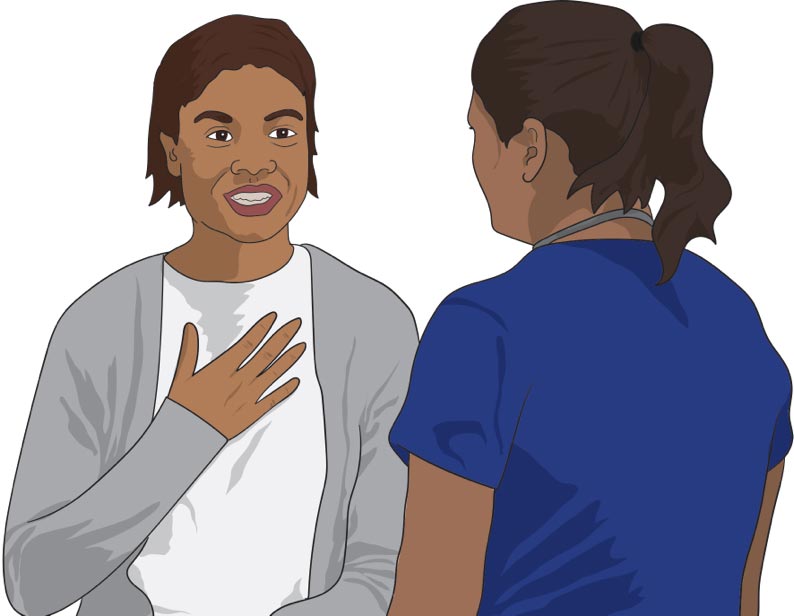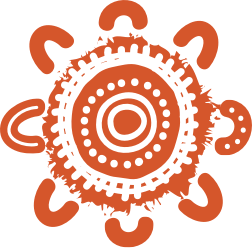- Home
- Where can I get help and support
- Yarning with doctors, nurses and others

Where can I get help and support


Yarning with doctors, nurses and others
Our knowledge systems are essential to our wellbeing. They guide us in life and help us make decisions. Our knowledge is passed onto us through ancestors, Elders, Country and our mob.
On your cancer journey, your doctors and health team can become people who help build your knowledge system about cancer. They offer knowledge to help us with what is best for us and information that is essential so we can make decisions about treatment and what we want.
Some people want to find out everything they can about cancer. Others want to be told straight what is best for them to do. Some people want to make decisions themselves while others will want their doctors to decide. Then there’s the people who want a bit of both – getting the information from doctors, yarning about it with them and others and then deciding what to do.
When you yarn with doctors, nurses and other health care people, the main thing is making sure you leave your appointment knowing what should happen next.
Doctors, nurses and health care workers are there to help you address any worries or questions you have about cancer and what’s happening on your journey. Mob who have had cancer say that sometimes it can be hard or embarrassing trying to put your worries into words and say what is on your mind, but over time you find your voice and say what you need.
Tips for talking to health people
Doctors, nurses and other health care workers all must respect Aboriginal and Torres Strait Islander cultures. It’s in their training and in their policies.
You can expect them to provide you with a safe space to get health care, and act in the proper way with respect for local cultural protocols including Women’s Business and Men’s Business.
Good health care is about trust. Many of our mob say it has worked out well for them by putting their trust in experts about cancer.
It is the responsibility of your doctors and health care team to make sure you understand about cancer and what needs to happen. Ask as many questions as you need. It’s okay to ask the same question a few times until you get the answer you need and have clarity. You doctor is there to help you understand.
Here are some tips about yarning with your doctors and health team:
- Make a list of questions to take to appointments.
- Have a yarn with others about what they asked.
- Take someone with you to your appointments. They can be another set of listening ears. They can help remember what gets said. They can write some notes and names of people, tests and treatments.
- You can also ask the doctor, nurse or Aboriginal and/or Torres Strait Islander health worker to write down what gets said.
- If you don’t hear back from anyone when you think you should, call them. Ask a local Aboriginal and/or Torres Strait Islander health worker to help keep in contact.
- Just like in community, when you think you haven’t been treated right, you go to people in authority who govern our mob for help. In the healthcare system, you have the right to complain if you think you have not been treated right. There are people and organisations who govern the healthcare system and are authorised to help you. Go to the Rights and racism page on this website for more information on how to get help or use the links below.
National - health
You can start with the Australian Health Practitioner Regulation Agency and they can direct you
National – aged care
All complaints or concerns about aged care services can go to the Aged Care Quality and Safety Commission
Australian Capital Territory
Go to the Health Services Commissioner within the ACT Human Rights Commission
New South Wales
Got to the Health Care Complaints Commission
Northern Territory
Go to the Health And Community Services Complaints Commission
Queensland
Go to the Office of the Health Ombudsman
South Australia
Go to the Health And Community Services Complaints Commissioner
Tasmania
Go to the Health Complaints Commissioner
Victoria
Go to the Health Complaints Commissioner or to the Mental Health Complaints Commissioner
Western Australia
Cancer in our mob
FIND OUT MORE
Life with and after cancer
FIND OUT MORE

